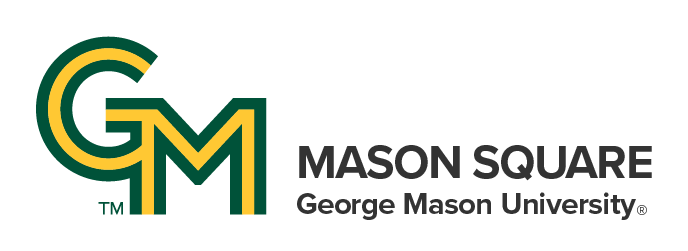More than 150 faculty and graduate students from George Mason University’s 10 schools and colleges got together in the Hub on Friday, February 3, to chat about artificial intelligence (AI). Called the AI Innovation Symposium, this was a concerted effort by the Institute of Digital Innovation (IDIA) to build communities of practice around topics in AI and bring together like-minded researchers who might never encounter each other in a large research university with four campuses.
Amarda Shehu, IDIA’s associate vice president of research, welcomed attendees and helped set the agenda for the day. Andre Marshall, vice president for research, innovation, and economic development, and Gurdip Singh, the divisional dean of the School of Computing, gave opening remarks and expressed their support for building capacity and establishing Mason as an AI university.
“These are not just research institutes,” Marshall said of Mason’s research enterprise, “but nascent innovation ecosystems, holistically addressing areas of urgent societal need by inclusively engaging stakeholders across disciplines and geographies.”
Marshall also spoke about the university’s research goals, growth in research funding, the huge talent pool Mason has to draw from, and the ability the university has to take ideas from “experiment to enterprise.”
Tables in the Hub ballroom were labeled with such topics as AI4Health, 4Science, Policy, Learning, Equity, Justice, Autonomy, Future of Work, and more. Shehu encouraged attendees to find others who shared their passion for a topic and seek critical mass.
“The objective is to build an AI community of faculty and researchers with a shared passion and complementary expertise to instigate and sustain long-term collaborations, ambitious research and educational agendas, and large-scale research, educational, and workforce development activities,” said Shehu.
Attendees spent the better part of the symposium working with their colleagues and building teams of shared interests around AI. Teams articulated their vision and their capabilities, and rich discussions ensued.
“Faculty relished the opportunity to connect with old and new colleagues in a relaxed format conducive to meaningful interactions,” said Kammy Sanghera, executive director of IDIA.
This was the second time IDIA has held such a symposium, said Sanghera. In 2020 there was a meeting surrounding the topic of tackling grand challenges.
During the symposium, IDIA’s inaugural class of predoctoral fellows were introduced to attendees shared their multidisciplinary research projects. The fellows and their projects are
- Facundo Nicolas Airaudo, “Optimal HVAC Outlay to Minimize Pathogen Transmission”
- Soelem Aafnan Bhuiyan, “Developing a Data Assimilation Technique to Improve the Monitoring and Forecasting of Coastal Hazards”
- Michael Timothy Crawshaw, “Multiple Guarantees in Distributed Deep Learning: Computation, Communication, and Sample Efficient Algorithms”
- Jinyi Kim, “A Multi-level Approach to Measuring Risks for Positive Youth Outcomes”
Shehu concluded: "We believe this is an important step towards truly leveraging synergies and connecting pockets of deep expertise across Mason to build a rich ecosystem of impactful, transdisciplinary activities as we continue to activate Mason Square and Fuse and position Mason for impact. This symposium will be one of many IDIA large-scale activities targeted to building community around AI and other technological frontiers and establishing Mason as a leader in the digital innovation space."
